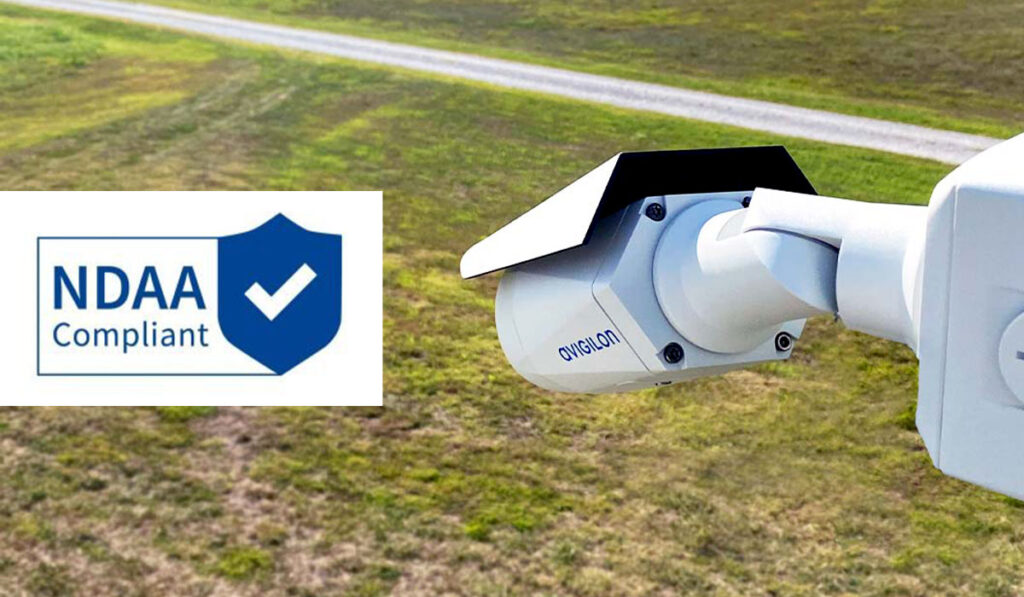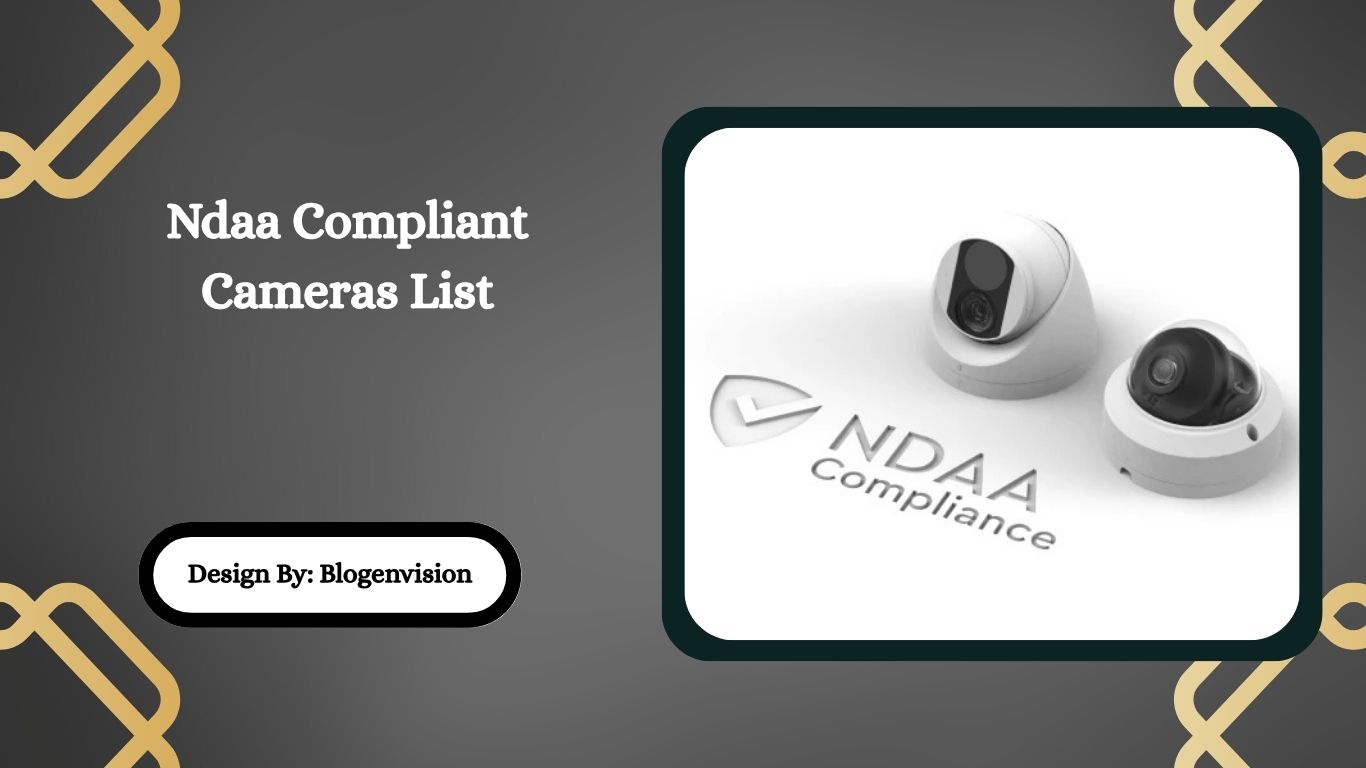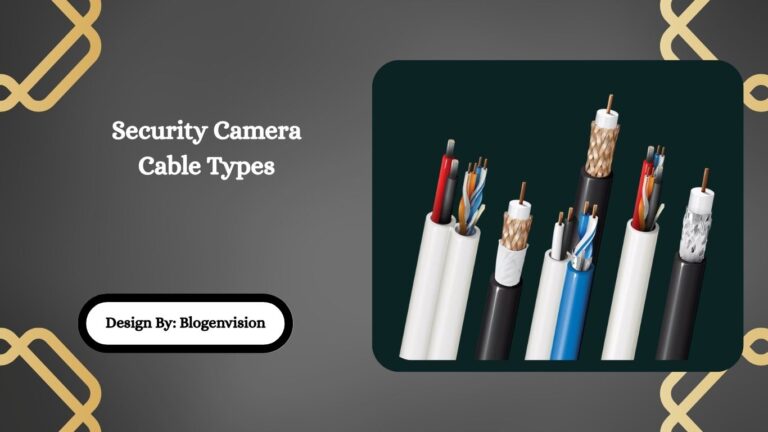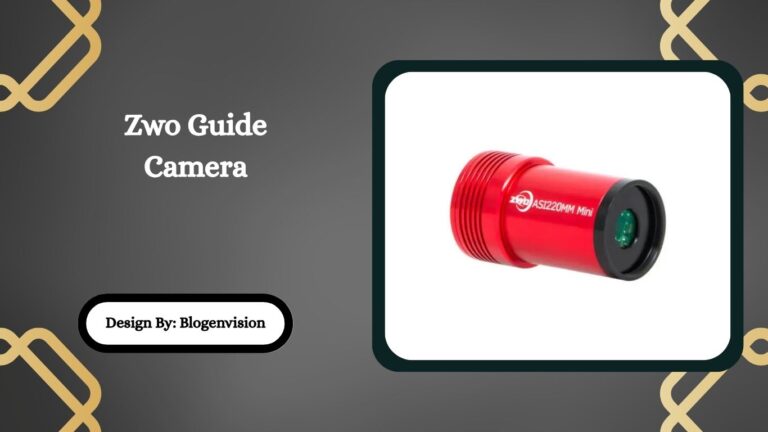Ndaa Compliant Cameras List – Which Brands to Trust!
NDAA-compliant cameras meet strict U.S. government security standards by excluding Chinese components. Trusted brands include Axis, Hanwha, Avigilon, and Bosch. Ideal for secure surveillance in public and government spaces.
With rising concerns over national security and surveillance integrity, the U.S. government has enforced strict regulations for surveillance equipment. One such mandate is the National Defense Authorization Act (NDAA), which restricts federal agencies from using certain Chinese-made surveillance technology. If you’re searching for an NDAA compliant camera list, this comprehensive guide will help you understand what compliance means, why it matters, and which brands and models are safe to use.
What Is NDAA Compliance?
The NDAA, or National Defense Authorization Act, is an annual U.S. federal law outlining military and national security spending. The 2019 NDAA Section 889 prohibits federal agencies from procuring or using video surveillance equipment and telecommunications from certain Chinese manufacturers like Huawei, Dahua, Hikvision, and their subsidiaries.
Why Is It Important?
- Ensures data privacy and cybersecurity.
- Prevents espionage risks from foreign-made technology.
- Is mandatory for government projects, contractors, and public institutions (schools, airports, federal buildings).
What Makes a Camera NDAA Compliant?

To qualify as NDAA-compliant, a security camera must:
- Exclude parts, firmware, or software from banned manufacturers.
- Avoid OEM relationships with prohibited companies.
- Be sourced from manufacturers with transparent supply chains and U.S.-approved hardware.
List of NDAA Compliant Camera Brands
Here is a list of trusted manufacturers that offer NDAA-compliant IP cameras and surveillance systems:
1. Axis Communications
- Origin: Sweden
- Key Models: Axis P32 Series, M30 Series
- Features: Wide dynamic range, AI analytics, superior build
- Compliance: 100% NDAA-compliant
Axis is known for pioneering IP cameras and maintains complete control over hardware and firmware, making it a top choice for government use.
2. Bosch Security Systems
- Origin: Germany
- Key Models: FLEXIDOME IP starlight 8000i, AUTODOME IP
- Features: Advanced AI analytics, starlight sensors
- Compliance: Fully NDAA-compliant
Bosch cameras are widely used in airports, transportation hubs, and city surveillance, offering high reliability.
3. Hanwha Vision (formerly Hanwha Techwin / Samsung)
- Origin: South Korea
- Key Models: Wisenet X Series, P Series
- Features: Cybersecurity-certified, AI-powered object detection
- Compliance: NDAA-compliant (except for a few older models)
Their “Wisenet” line is particularly popular with U.S. school districts and federal buildings.
4. Avigilon (a Motorola Solutions company)
- Origin: Canada / USA
- Key Models: H5A Camera Line, H6SL Bullet
- Features: Onboard analytics, edge AI, encrypted transmission
- Compliance: 100% NDAA-compliant
Avigilon systems are purpose-built for U.S. government use, offering end-to-end compliance and storage solutions.
5. IDIS
- Origin: South Korea
- Key Models: DC-T6233HRX, DC-D4216WR
- Features: Full HD, IR, vandal resistance
- Compliance: NDAA-compliant models available
While not all IDIS models are NDAA-certified, they offer a wide range of compliant cameras with clearly marked documentation.
6. Digital Watchdog (DW)
- Origin: USA
- Key Models: MEGApix® IP Cameras
- Features: NDAA certification, Star-Light Plus™ technology
- Compliance: Entire MEGApix line is NDAA-compliant
DW cameras are used by law enforcement agencies and schools throughout the U.S.
7. Vivotek
- Origin: Taiwan
- Key Models: IB9367-EHT-v2, FE9391-EV
- Features: Advanced AI, vandal-proof, weatherproof
- Compliance: Most models are NDAA-compliant
Vivotek works with U.S. military integrators and offers extensive documentation proving compliance.
8. LILIN
- Origin: Taiwan
- Key Models: MR8322AX, ZFR8122EX
- Features: Low-light, edge recording
- Compliance: NDAA-compliant if specified
Always check datasheets, as not all LILIN models are NDAA-approved.
What Brands Are NOT NDAA Compliant?
Avoid the following manufacturers for government-related or critical infrastructure use:
- Hikvision
- Dahua
- Huawei
- Zhejiang Uniview
- Any OEM rebrands (e.g., Lorex, EZVIZ, Swann may source parts from banned suppliers)
Note: Many consumer brands repackage Chinese hardware—always check the camera’s chipset and firmware source.
How to Identify NDAA Compliant Cameras?
Here are some tips to verify compliance before purchasing:
- Check Manufacturer’s Datasheet: Most NDAA-compliant models will state it clearly.
- Look for U.S. GSA Approval: The General Services Administration (GSA) lists compliant models.
- Avoid “OEM” Rebrands: Many off-brand or store-brand cameras contain banned components.
- Ask for a Compliance Letter: Reputable vendors will provide written proof of NDAA compliance.
- Trace the Supply Chain: Ensure no components are sourced from prohibited companies.
Where to Buy NDAA Compliant Cameras?

You can find NDAA-approved models at these online vendors:
- B&H Photo
- Network Webcams (UK)
- IPCamCentral
- SCW (Security Camera Warehouse)
- Anixter
- CDW
- Axis or Hanwha Direct Distributors
Be cautious with marketplaces like Amazon and eBay, where product origins may be unclear.
Who Needs NDAA Compliant Cameras?
If you belong to any of the following sectors, NDAA compliance is critical:
- Federal Government Agencies
- State and Local Governments (in some states)
- Military Installations
- Hospitals and Healthcare Facilities
- Schools and Universities
- Airports and Transportation Terminals
- Public Utilities
- Private Contractors working with government contracts
Benefits of Using NDAA Compliant Cameras
- Cybersecurity: Stronger encryption, software control, and supply chain transparency
- Futureproofing: Meets upcoming regulatory standards
- Access to Government Contracts: Required for eligibility
- Improved System Integrity: Lower risk of hidden backdoors or spyware
- Higher Quality Hardware: Often made by companies with robust R&D and support
FAQs About NDAA Compliant Cameras:
1. Are NDAA compliant cameras required for schools and universities?
Not all schools are mandated, but many choose NDAA-compliant systems to future-proof infrastructure and align with funding requirements from federal and state programs.
2. Can consumer cameras like Ring or Arlo be NDAA compliant?
Most consumer-grade brands are not NDAA-compliant. These devices are generally not suitable for government or enterprise-grade security projects requiring high-level compliance.
3. Is NDAA compliance necessary for home security?
No, NDAA rules apply to government-funded entities. However, privacy-conscious homeowners may still prefer NDAA-compliant options for peace of mind.
4. How do I verify if a camera brand is rebranded from Dahua or Hikvision?
Check the camera’s chipset, firmware documentation, or vendor transparency. You can also search the FCC ID or contact the manufacturer for origin details.
5. What happens if a government contractor uses non-NDAA compliant cameras?
Violating Section 889 may lead to disqualification from contracts, federal penalties, and mandatory equipment replacement—potentially costing thousands in damages.
Conclusion:
In 2026, choosing an NDAA compliant camera isn’t just about meeting regulations—it’s about ensuring data privacy, system integrity, and long-term viability. Brands like Axis, Hanwha, Avigilon, and Bosch are leading the way with secure, government-approved surveillance solutions. Whether you’re outfitting a school, city facility, or enterprise, verifying compliance should be a top priority. Use this guide to make informed decisions and safeguard your network from cybersecurity threats and compliance violations.







